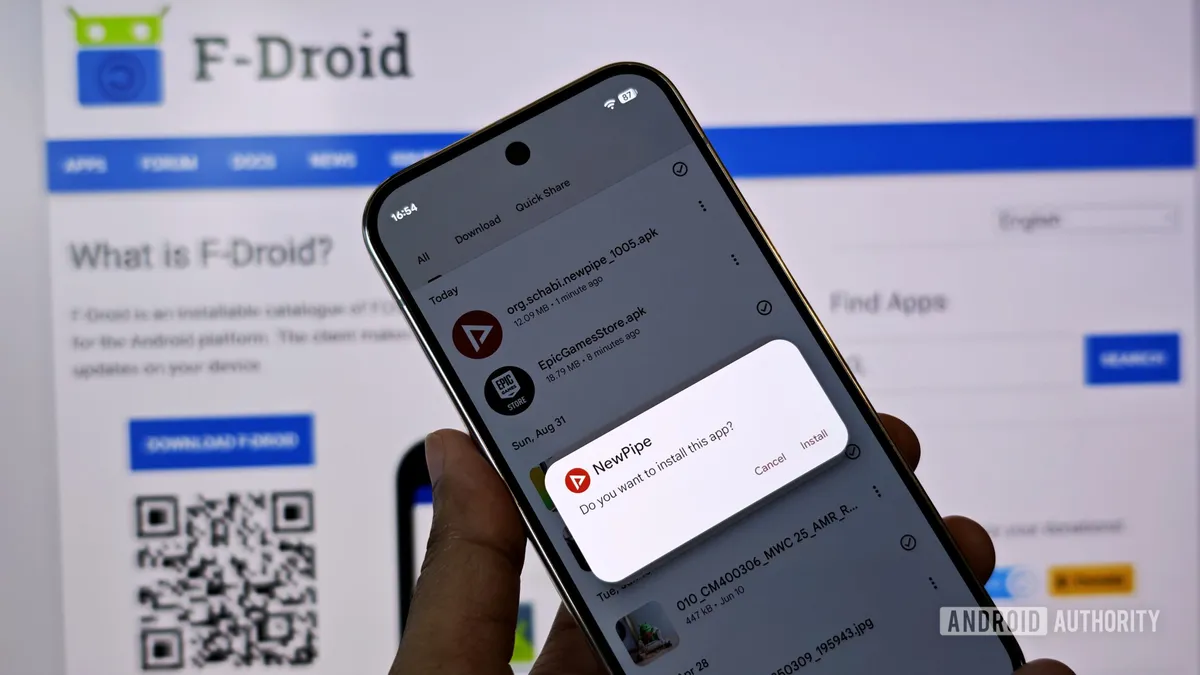
In a significant development, Google and Epic Games have finally reached an agreement to settle their years-long legal dispute. This settlement, if approved by the presiding judge, aims to resolve the lawsuit Epic filed in 2020, which challenged Google's dominance over Android app distribution. The implications of this settlement are profound, as it will usher in major changes to the Android ecosystem, particularly with the upcoming release of Android 17.
As part of the settlement, Google is set to implement a series of sweeping changes to the Android operating system. One of the most notable changes is the introduction of a new system that will facilitate the easy installation of third-party app stores. This initiative aims to reduce the barriers currently associated with acquiring apps outside the Google Play Store.
This shift is especially timely, as new developer verification requirements will also come into effect next year. Starting in September 2026, Android will block the installation of apps from unverified developers, leading to concerns among critics regarding the future of alternative app stores like F-Droid. Despite assurances that sideloading will continue, many are hopeful that the settlement will lead to a relaxation of Android's current sideloading restrictions.
One of the most significant changes coming to the Android OS is the support for “Registered App Stores.” These are third-party app stores that Google certifies, ensuring they meet certain standards. While the certification process has yet to be defined, the settlement stipulates that Google will establish reasonable requirements for certification, which could include app store reviews and the payment of a fee that does not scale with the store's revenue.
Once an app store is certified, users will be able to install it with a single click from its website, streamlining the process significantly. This new approach aims to replace the current multi-step installation process that has been criticized for being overly complex and discouraging for users. By simplifying this experience, Google hopes to encourage greater adoption of third-party app stores, potentially fostering a more competitive landscape.
In addition to simplifying the installation process, Google is committed to preventing manufacturers (OEMs) and carriers from being blocked from preinstalling third-party app stores. Previously, such partnerships often included agreements that favored the Google Play Store. Now, under the agreement, Google cannot restrict these actions for three years, promoting fair competition among app stores.
Moreover, Google has pledged to allow third-party app stores to operate on Android without incurring any fees until June 30, 2032. This means that developers will be able to distribute their apps through alternative channels without additional financial burdens, ensuring a more vibrant app ecosystem.
The settlement also brings significant changes to Google’s policies regarding alternative billing and developer-user communication. Developers will now have more flexibility in selecting their app distribution platforms. They will not be forced to use Google Play Billing exclusively for in-app transactions. Instead, they can offer alternative payment methods, which can include external links or different in-app payment systems.
This change is crucial as it allows developers to retain a larger portion of their revenue, potentially passing those savings on to users. However, Google will still charge service fees on transactions made through alternative payment methods, which could range from 9% to 20%, depending on the nature of the transaction.
While the proposed changes represent a significant step forward for third-party Android app stores, they do not fully address all of Epic's grievances. The settlement largely benefits Epic, which has long sought to position its Epic Games Store as a major player in the Android marketplace. The reduced friction in installing its store and the newfound ability to form partnerships with OEMs for preloading will enhance its visibility and accessibility.
In conclusion, Google's proposed adjustments will pave the way for a more competitive environment in the Android app ecosystem. While the immediate benefits for developers who do not wish to operate their own stores may be limited, the long-term potential for a more equitable marketplace is promising. If these changes allow third-party stores to gain traction, it could lead to improved terms for developers and a better experience for users.